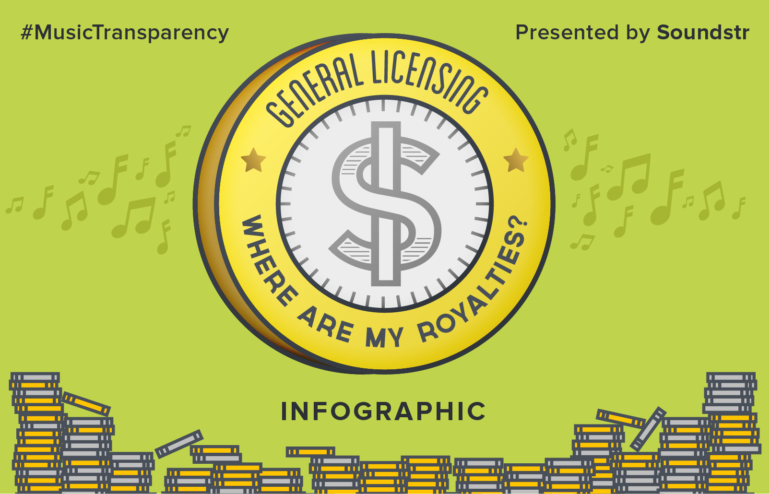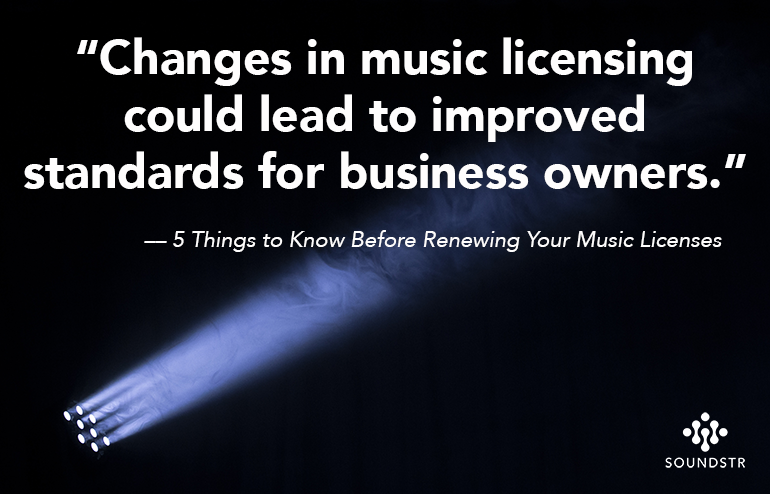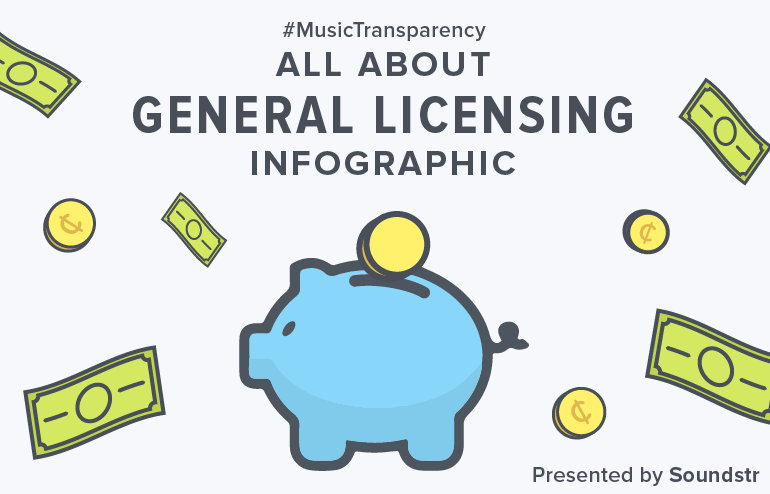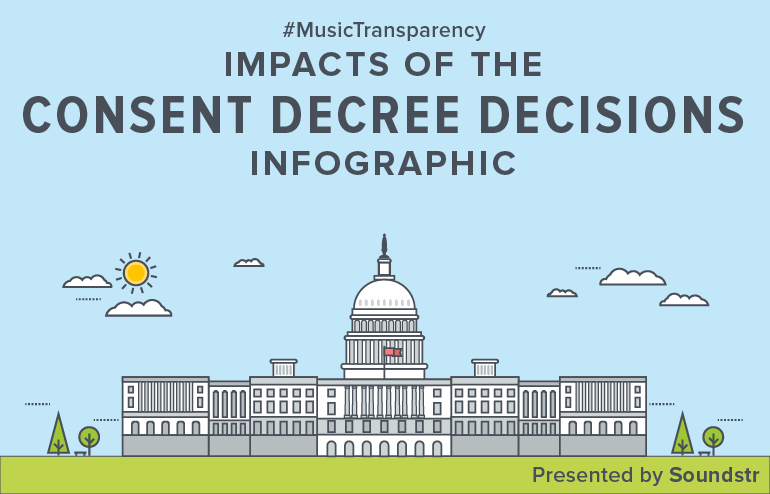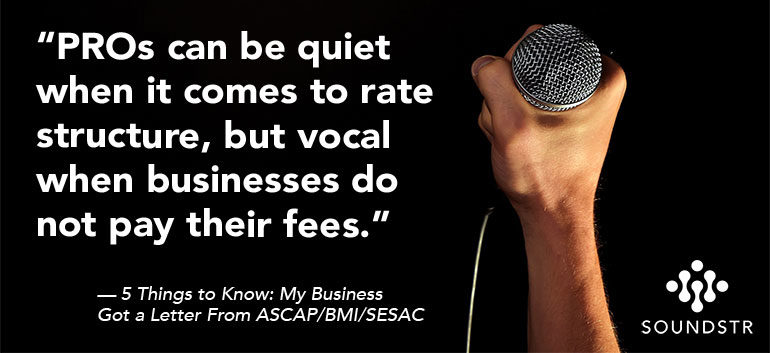[vc_row][vc_column][vc_column_text]General Licensing: Where Are My Royalties?
General Licensing isn’t a sexy topic in the music industry. What is it and why does it generate almost four times more revenue for songwriters than all digital services combined! Why is nobody talking about it and what is being done to modernize this area of the business? For more information, please check out the SXSW 2017 Panel, “General Licensing: Where Are My Royalties?“[/vc_column_text][vc_separator][vc_custom_heading text=”SHARING:
” font_container=”tag:h4|text_align:left|color:%231674d1″ use_theme_fonts=”yes”][vc_column_text css=”.vc_custom_1489189071877{padding-top: 10px !important;}”]We encourage you to share this infographic image or download a printable PDF (with links), along with the hashtag #MusicTransparency on Facebook, Twitter and beyond. We kindly ask that you use it in its entirety and do not edit in any way. Thank you for respecting our work.[/vc_column_text][/vc_column][/vc_row][vc_row][vc_column][vc_single_image image=”76001″ img_size=”full”][/vc_column][/vc_row][vc_row][vc_column][thememove_button open_new_tab=”1″ text=”Download Image” url=”http://44.193.39.137/wp-content/uploads/2017/03/Soundstr_Where-Are-My-Royalties_Infographic.png” icon=”vc_icon_element-icon fa fa-file-image-o”][thememove_button open_new_tab=”1″ text=”Download the PDF” url=”http://44.193.39.137/wp-content/uploads/2017/03/Soundstr_Where-Are-My-Royalties_Infographic.pdf” icon=”vc_icon_element-icon fa fa-file-pdf-o”][/vc_column][/vc_row][vc_row][vc_column][vc_custom_heading text=”CREATORS:
” font_container=”tag:h4|text_align:left|color:%231674d1″ use_theme_fonts=”yes”][vc_column_text css=”.vc_custom_1489189258538{padding-top: 10px !important;}”]Soundstr uses recognition technology to identify real-world music usage and offers new advertising opportunities for businesses and songwriters. This transparency offers businesses a way to negotiate PRO license fees based on actual music usage, and songwriters a way to earn royalties when their music is used in the real world. Soundstr is a venture-backed startup, founded by songwriters and leverages best-in-class recognition technology by Gracenote (Nielsen). Click here to learn more about Soundstr.[/vc_column_text][vc_text_separator title=”SOURCES” i_icon_fontawesome=”fa fa-link” i_size=”sm” add_icon=”true”][vc_column_text]
- “BMI Annual Review 2016” BMI. Web: https://www.bmi.com/pdfs/publications/2016/BMI_Annual_Review_2016.pdf
- “Global Collections Report (2016).” CISAC. N.p., 23 Nov. 2016. Web: http://www.cisac.org/Cisac-University/Library/Royalty-Reports/Global-Collections-Report-2016
- “Our ASCAP 2015 Annual Report” ASCAP. Web: https://www.ascap.com/-/media/files/pdf/about/annual-reports/2015-annual-report.pdf?la=en
- “BMI Annual Review 2016” BMI. Web: https://www.bmi.com/pdfs/publications/2016/BMI_Annual_Review_2016.pdf
- “Nielsen BDS ‐ Stations Monitored” Nielsen. Febuary 2, 2017: https://www.nielsen.com/content/dam/corporate/us/en/docs/solutions/measurement/radio/BDS_StationsMonitored.pdf
- Waits, Jennifer. “Number of Radio Stations in the U.S. Grows this Quarter According to FCC.” Radio Survivor. N.p., 14 Oct. 2015. Web: http://www.radiosurvivor.com/2015/10/14/number-of-radio-stations-in-the-u-s-grows-this-quarter-according-to-fcc/
- Penick, Brian. “General Licensing Infographic.” Soundstr. N.p., 31 Aug. 2016: https://44.193.39.137/general-licensing-infographic/
- “ASCAP OnStage, ASCAP Plus Awards, Performance Notification and our Top 300 Tours Survey.” ASCAP. N.p., n.d. Web: https://www.ascap.com/help/royalties-and-payment/payment/monetaryawards
- “Live Concert Royalties” BMI. Web: https://www.bmi.com/creators/royalty/live_concert_royalties
- “2016 Year End Top 200 North American Tours” Pollstar. Web: http://www.pollstarpro.com/files/Charts2016/2016YearEndTop200NorthAmericanTours.pdf
- “BMI Annual Review 2016” BMI. Web: https://www.bmi.com/pdfs/publications/2016/BMI_Annual_Review_2016.pdf
- “BMI Annual Review 2016” BMI. Web: https://www.bmi.com/pdfs/publications/2016/BMI_Annual_Review_2016.pdf
- “General Licensing: Where Are My Royalties?” SXSW 2017 Schedule. N.p., 16 Mar. 2017. Web:
http://schedule.sxsw.com/2017/events/PP63027
[/vc_column_text][vc_column_text]
Credits:
• Artwork: Corey Donovan
• Copy: Brian Penick (@BrianPenick) & Eron Bucciarelli-Tieger (@EronBucciarelli)

